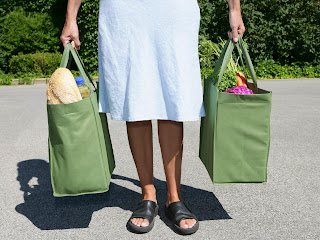More than 170 countries worldwide have banned or vowed to ban plastic bags. However,
consumer resistance towards plastic bag bans have become a generalized phenomenon
worldwide leaving governments and organizations a big task ahead, considering
this is just the start with more sustainability interventions to come. Refusal to accept the ban is seen every time a
US state - and similarly with many other states and countries- introduces a
ban, with some people suggesting that “plastic bags help the environment.
Banning them provides no benefit other than to let activists lord their
preferences over others”.
As the challenges of the environmental crisis make themselves more salient, governments search for solutions to reduce the negative impact of economic activity. A popular measure has been the banning of disposable plastic bags used in retail. Bans on plastic bags may seem like an easy way to cut on plastic pollution, but more often than not, these bans are met with strong pushback by consumers, retailers, and other members of society.
My co-authors and I studied consumer resistance to a nationwide plastic bag ban implemented in Chile in February 2019. Chile was the first South American country to ban the use of plastic bags nationally. We conducted interviews, and observations with consumers, and collected documents, news articles, and social media posts related to the Chilean ban, starting in 2013, when an initial ban in coastal areas was announced, and lasting until four months after the implementation of the ban in the entire country (June 2019). We analyzed these data focusing on consumer resistance - and asked What gives rise to consumer resistance to sustainability interventions such as bans on plastic bags? And how can consumer resistance be reduced to make such interventions more effective?
We discovered that consumers
refuse to accept or support a sustainability intervention, that is, they resist
it, because the targeted individual behaviors - in this case using disposable
plastic bags for shopping - are embedded in broader social practices. Social
practices are sets of doings, materials, and meanings that are similarly
understood and shared by a group of people. Eating, cooking, shopping, driving,
and reading are examples of social practices shared by large groups, and these
practices determine people’s way of life and - to a large extent - who they
are. From this perspective, a behavior - for example, using a plastic bag to
carry groceries - is simply a performance of the socially shared, habituated
practice of shopping.
An intervention like banning
plastic bags triggers change in the social practice of shopping, as plastic
bags are one of the materials that constitute this practice, and as such are
used in many of its doings (bagging groceries, carrying them home) and meanings
(convenience, speed). To change the social practice of shopping after a plastic
bag ban, consumers need to go through three processes: (1) Sensemaking, which
means to understand and develop new meanings for the changing shopping
practice; (2) Accommodating, which requires them to develop new competences for
using and handling the new materials involved in performing the shopping
practice without disposable plastic bags; and (3) Stabilizing, which means they
need to perform the changed practice often and efficiently. Consumers do not
find these processes easy - engaging in them disrupts routines, lifestyles, and
even consumers’ perceptions of themselves.
In addition to the challenge
of changing a social practice such as shopping, consumers face other challenges
that prompt them to resist plastic bag bans. Plastic bags and other
sustainability interventions often fail to acknowledge that individual actions
are part of broader social practices and aim for individual behavioral change
rather than change to the social practice itself. As a consequence, consumers
face three major challenges: (1) battles about who is responsible for making
practices more sustainable; (2) unsettling emotions brought about by the
changing practice; and (3) the changes to other linked practices that dismantle
their ways of life. Once these reasons for consumer resistance are known, it is
not surprising that consumers will push back against sustainability
interventions.
Consumer resistance interferes
with social practice change, which significantly undermines the effectiveness
of the sustainability intervention. Our findings show, for policy makers and
other agents involved in sustainability interventions, that changing social
practices - not individual behaviors - should be their primary goal. Based on
this study, we developed a framework for designing and managing practice-based
sustainability interventions, taking into account the role of consumer
resistance.
First, to plan and design a
practice-based intervention, we recommend the following steps:
1 - Identify the practice
being targeted (e.g. shopping), and how it is likely to be disrupted (e.g.
material will be eliminated - plastic bags)
2 - Distribute responsibility
for change among those involved in the practice (e.g. consumers, retailers, bag
manufacturers, government)
3 - Determine potential emotions that may
manifest (positive to leverage and negative to placate)
4 - Identify links between the
targeted practice and other social practices (e.g. the plastic bags used in
shopping are also used for garbage and waste management)
Then, to monitor and adjust
practice-based interventions if consumer resistance emerges, we recommend three
main strategies:
1 - Refocus sensemaking if
consumers are experiencing tension and lacking focus
2 - Encourage accommodation if
consumers are avoiding risks and restricting their experimentation during the
change process
3 - Accelerate stabilization
if consumers are grappling with discomfort and don’t seem to be able to settle
with a new version of the social practice.


